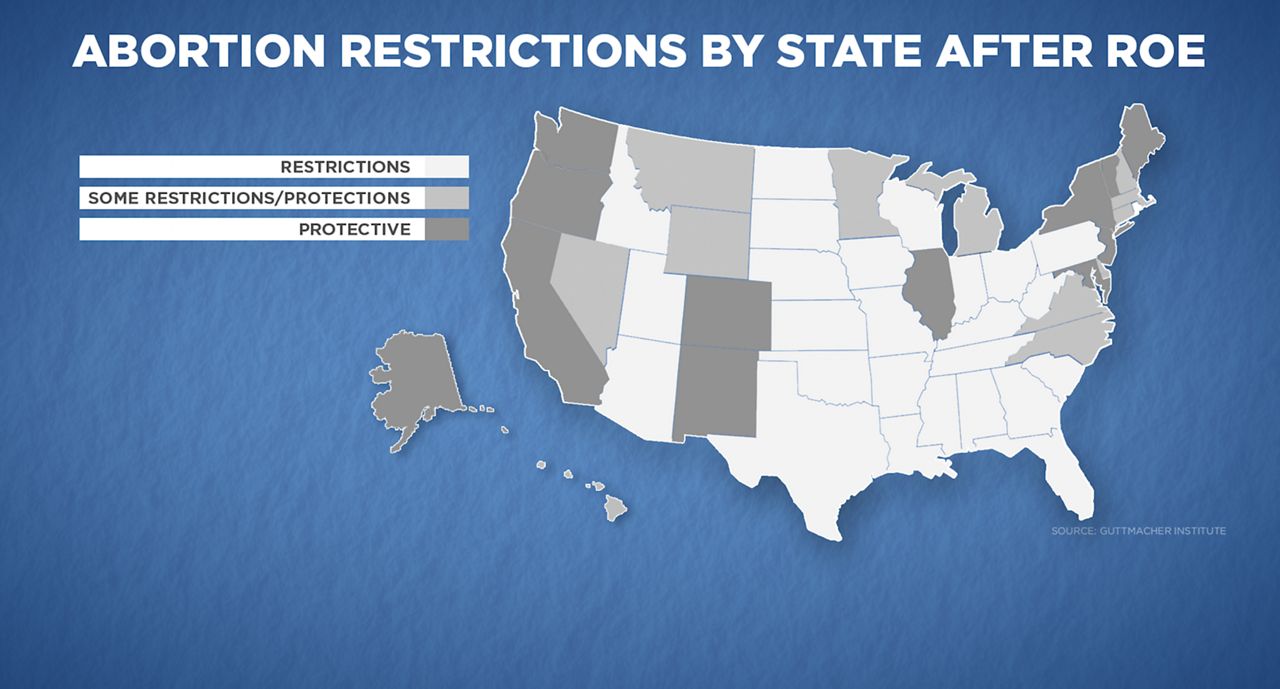Nearly two months after the Supreme Court overturned Roe v. Wade and ended the constitutional right to an abortion, voters in Kansas on Tuesday overwhelmingly rejected a referendum that could have led to severe restrictions or even a ban on abortions in the state.
The lopsided vote in a state that picked former President Donald Trump by nearly 15 points in 2020 is raising the possibility that those eager to protect abortion rights could sway November’s midterm elections, making up for what’s seen as Democrats’ disadvantage on other issues.
The tally wasn’t close: By about 20 percentage points, across liberal and conservative areas, Kansans rejected changing the state Constitution to allow their State legislature to limit or ban abortion. This in a state that since 1964 has voted for a Republican presidential candidate – a party with a platform long opposed to abortion rights.
“Ending the Roe v. Wade precedent made people suddenly aware that they were losing something that they have relied on now for really two generations,” said Ziad Munson, author of the book “Abortion Politics" and a professor of sociology at Lehigh University. “That is a strong motivation to act."
But the Kansas referendum put the question of abortion directly to voters. It’s less clear whether abortion can have a galvanizing effect on an election between two candidates with opposing views on abortion rights.
“Right now it's it's too soon to believe that voters will recognize that voting for Republicans is going to mean more and more abortion bans in these different places,” said Munson.
Democrats are hoping to alert voters to the stakes in the midterm elections, making the case that abortion rights are on the ballot in November.
On Wednesday, President Biden warned voters about what's at stake in the fall as he convened a meeting of his interagency Task Force on Reproductive Healthcare Access and signed an executive order aiding patients traveling out of state for abortions.
“The voters of Kansas sent a powerful signal that this fall the American people will vote to preserve and protect the right and refuse to let them be ripped away by politicians,” he said.
"I believe Roe got it right," Biden said Wednesday, calling the court's decision to overturn the landmark ruling a "health care crisis."
"It has been the law for close to 50 years. And I committed to the American people that we're doing everything in our power to safeguard access to health care, including the right to choose that woman had under Roe v. Wade, which was ripped away by this extreme court."
For an increasing number of voters, abortion is emerging as a top issue this fall, with American voters now more likely to prioritize abortion at the ballot box in November, according to a FiveThirtyEight/Ipsos survey from earlier this month.
The survey found that 19% of voters said that abortion was their leading concern, up from just 9% who ranked abortion as a top issue in a survey conducted before the Roe v. Wade decision was announced.
And Democrats are certainly already campaigning on the issue: Georgia gubernatorial candidate Stacey Abrams, for instance, recently released an ad attacking rival Gov. Brian Kemp on the policy.
But voters still largely rank the economy as their No. 1 issue, including more than 60% of respondents to the FiveThirtyEight/Ipsos poll. It's no wonder that her rival, incumbent Gov. Brian Kemp, is attempting to tie Abrams' canmpaign to sky-high inflation.

A majority of states now restrict or ban the procedure outright, according to the Guttmacher Institute, a pro-reproductive rights policy organization.
That has Republicans walking the line between satisfying those eager to keep or increase restrictions, without alienating the majority of Americans polled as believing it should be legal at least sometimes.
“What happened in Kansas in terms of the choice over constitutional amendment is going to play an important role in Arizona, all over the United States, probably in every state in the union, with a couple of possible minor exceptions,” said Thomas Volgy, a professor at the University of Arizona’s School of Government and Public Policy.
A number of states' races in November could have major impacts on the right to an abortion nationwide, both at the state level – governor's races and state legislatures – or the federal level, with control of Congress up for grabs.
President Biden in July urged the American public to elect more lawmakers in favor of protection abortion access in November.
"If you want to change the circumstances for women and even little girls in this country, please go out and vote," he said at the time. "When tens of millions of women vote this year, they won’t be alone. Millions and millions of men will be taking up the fight alongside them to restore the right to choose and the broader right to privacy in this nation, which they denied existed."
Spectrum News' Anna Betts contributed to this report.



